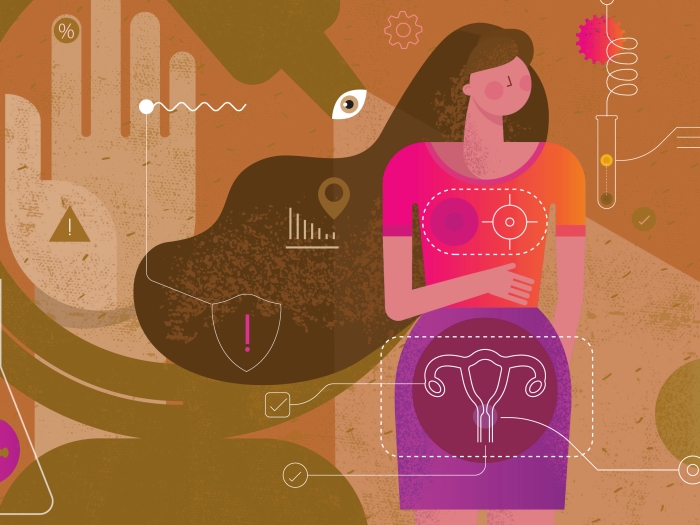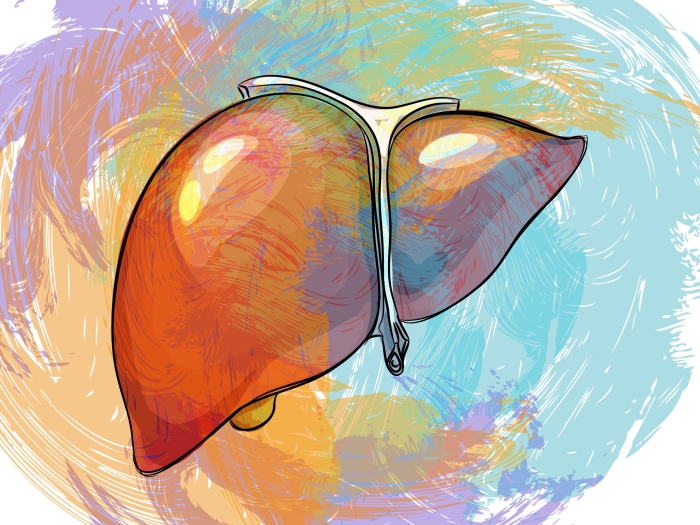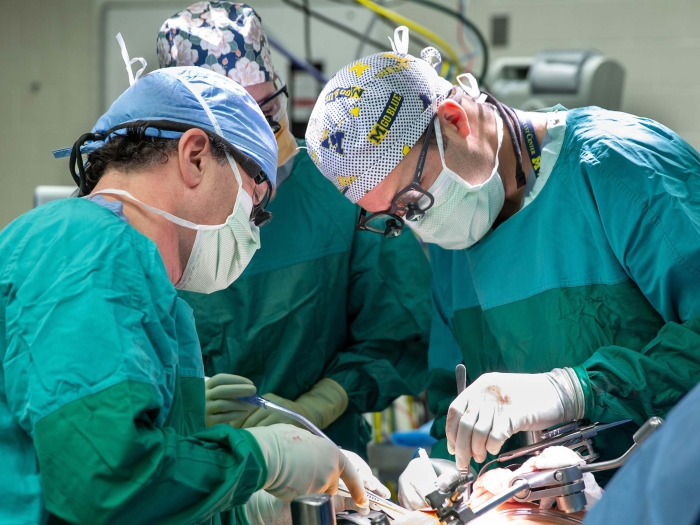It’s estimated that between 10 and 15% of people in the US suffer from IBS – irritable bowel syndrome.
People with IBS experience diarrhea, or constipation. Sometimes both! Add abdominal pain to the mix, and a range of other symptoms, and the resulting experience can range from uncomfortable and inconvenient, to debilitating.
People have a lot of questions about IBS, and there is a lot of information out there online. Unfortunately, not all of it is rooted in facts.
In this episode, gastroenterologist William Chey, M.D. joins us to answer the most commonly searched questions on the internet about IBS, including:
- What causes IBS?
- What are the symptoms of IBS?
- How is IBS treated?
- What is “leaky gut” and is there a link between IBS and “leaky gut”?
- What is the difference between IBS and IBD?
- What is your gut microbiome, and what does it have to do with IBS?
More resources
- Visit Dr. William Chey's profile
- Learn more about IBS care at U-M Health
- On the blog: Diaphragmatic breathing for individuals with GI conditions
- On the blog: Is chocolate safe for people with IBS?
Transcript
Dr. Preeti Malani (00:01):
It's estimated that between 10 and 15% of people in the US suffer from IBS, irritable bowel syndrome. People with IBS experience diarrhea or constipation, and sometimes both. Add abdominal pain to the mix and a range of other symptoms, and the resulting experience can range from uncomfortable and inconvenient to debilitating. Today we're talking about IBS with Dr. William Chey. Dr. Chey is a gastroenterologist with University of Michigan Health. His work is centered on the diagnosis and treatment of IBS, constipation, fecal incontinence, and how nutrition and lifestyle play a part in these and other related conditions.
People have a lot of questions about IBS and there's a lot of information out there online. Unfortunately, not all of it is rooted in facts. So let's talk about what doctors want you to know about IBS. I'm Dr. Preeti Malani. Thank you for joining us on The Michigan Answers podcast.
Hi, Dr. Chey. Thank you for joining us today.
Dr. William Chey (00:58):
Hi, Preeti. It's wonderful to be here.
Dr. Preeti Malani (01:00):
Our team has scoured the internet and pulled together a list of the most searched questions about IBS. We're going to go through all of them with you today, so let's get started. Number one, what is IBS?
Dr. William Chey (01:12):
IBS is an incredibly common condition and it's defined by the presence of characteristic symptoms. So for example, abdominal pain in combination with altered bowel habits, and that can be either constipation, diarrhea, or a mixture of constipation and diarrhea.
Dr. Preeti Malani (01:29):
You've touched on this a bit already, but what are the symptoms of IBS?
Dr. William Chey (01:32):
Yeah, to have IBS, you must have abdominal pain. So for example, having just diarrhea or constipation is not sufficient to make a diagnosis of IBS. You have to have abdominal pain in combination with those altered bowel habits.
Dr. Preeti Malani (01:50):
How do you treat IBS?
Dr. William Chey (01:52):
Boy, that's a question that's continuing to evolve. And if you had asked me that question 30 years ago, I would've said, "Take some anti-diarrheals or some medication for constipation and then call me if you have problems." But nowadays, in 2022, the story has evolved a lot. As you mentioned in the introduction, we're focusing a lot more on dietary solutions as well as behavioral solutions. So the good news for patients is we can take a much more holistic approach. For example, when a patient comes in and tells me that their symptoms are related to food, I'm thinking diet first, whereas, again, 30 years ago, I still would've offered a medication.
Dr. Preeti Malani (02:35):
Can you give us some specifics on the type of food-related interventions that might be helpful?
Dr. William Chey (02:41):
Probably the biggest discovery over the past 20 years in regards to diet has been this concept of something we call FODMAPs, fermentable oligosaccharides, disaccharides, monosaccharides and polyols, which is a really fancy and complicated way of referring to short chain sugars that your body has a very difficult time breaking down and absorbing, and for that reason, get down to your colon where they're digested by the bacteria in the colon to produce gases and chemicals that can serve as important triggers for symptoms in patients with IBS.
So eliminating these FODMAPs, as it turns out, can oftentimes improve symptoms in patients with IBS. In fact, in a randomized controlled trial, the only US randomized controlled trial, that we conducted right here in Michigan, we found that around 50% of patients with IBS will experience significant improvement in their abdominal pain and bloating in particular with a low FODMAP diet.
Dr. Preeti Malani (03:43):
What are some of the foods that people have to avoid with this type of diet?
Dr. William Chey (03:48):
Yeah, so I'll comment on the foods and then I want to comment on the process, because that's a really important thing for people to understand. What we typically do is we'll ask them to remove all five of those different categories of FODMAPs. And probably the biggest offenders and the toughest thing for patients is garlic, onions, and wheat. Those are all foods that contain a sugar called fructans, which are one of the most common triggers for IBS symptoms. But also in Michigan, a really important thing for people to think about are the so-called stone fruits. The seasonal fruits like cherries, peaches, plums that are so popular in states like Michigan unfortunately contain sugars that are very hard for most people to be able to break down or absorb and for that reason can serve as, again, an important trigger for symptoms.
So we typically will have patients eliminate all those different five categories of FODMAPs, and if they get better, after a period of two to six weeks, we'll go on to a reintroduction phase where we reintroduce foods containing individual FODMAPs to determine a person's sensitivities. And then in the third phase of the diet program, we'll personalize and hopefully liberalize their diet for a more long-term use. So it's really important for patients to understand that the low FODMAP diet, at least the exclusion part, is not a long-term diet solution. It's really a diagnostic test to determine whether somebody's sensitive to FODMAPs. And it's really important to undergo those, that reintroduction phase and also the personalization phase.
Dr. Preeti Malani (05:30):
Besides FODMAP diets, what other aspects of treatment are important?
Dr. William Chey (05:34):
Boy, there's so much going on right now. For example, there are other diet therapies that are being explored. So for example, we just finished a multi-center study in collaboration with Harvard and a couple of other centers across the United States, enrolling several hundred patients, where we looked at a test which utilizes IgG antibodies to food to identify food sensitivities amongst patients with IBS. It's amazing when you actually talk to IBS patients, at least two-thirds of them say that their symptoms are related to eating food. And yet I told you that around half get better with low FODMAP. Well, what about the other half? And so we were very interested in this new testing with IgG antibodies to identify or guide an exclusion diet, developing a personalized exclusion diet for patients with IBS. And the results are quite promising and will justify actually going on to a very large multi-center phase three program in the United States. So we're very excited about that.
In addition, behavioral therapies now have really moved out of the shadows and in the full light of day, and clearly work for many patients with IBS, whether you're talking about things like cognitive behavioral therapy or gut-directed hypnosis. And one of the things that I think is most exciting about behavioral therapies in 2022, acknowledging the fact that there are maybe 200-300 GI psychologists in the entire United States.
So here's the thing, if we're going to rely on face-to-face visits with a GI psychologist, those therapies will never scale. But in 2022, there are now multiple mobile apps, some even FDA-approved and prescription-based that offer cognitive behavioral therapy or gut-directed hypnotherapy to patients anywhere on their terms. And there are also, being very quickly developed now, integrated care platforms that will deliver not only medical therapy, but also diet therapy and behavioral therapy to any patient with IBS anywhere in the country.
So I probably sound like I'm really excited about this and I am, because we've built one of the most successful and holistic integrated care programs for IBS in the country at Michigan. But here's the problem. We can only take care of a tiny number of patients in the universe of all those millions of patients with IBS. And so the development of these scalable solutions should offer hope to people with IBS that a more holistic approach, which really embraces the evidence-based solutions, including diet, behavior and medications, is on its way.
Dr. Preeti Malani (08:43):
Yep, so lots of work on the patient end, but that's a lot better than the symptoms I get.
Dr. William Chey (08:49):
It is, and it's amazing how motivated people are that are suffering with these symptoms, particularly when the symptoms are frequent enough or severe enough to where they're really impacting on a person's ability to conduct their daily activities. They're really highly motivated to do things, and particularly when they make that link between what they're eating and the onset of their symptoms.
Dr. Preeti Malani (09:14):
What is leaky gut and is there a link between IBS and leaky gut?
Dr. William Chey (09:18):
Wow, that's a loaded term, very popular on the internet for sure, and actually more and more questions from doctors in addition to patients. So leaky gut is the popular term for what we refer to as intestinal permeability. That is, remember that there's a layer of cells that lines the gastrointestinal tract and separates what's in the lumen of the gastrointestinal tract, like food, the organisms that live there, bile acids, all the other chemicals and things that are produced and released by the intestines and colon. So the cells separate what's in the lumen from the nerves and the immune cells that reside in the wall of the GI tract.
Now, when there's exposure of those nerves and immune cells to proteins, sugars, bacteria, the things that are in the lumen of the GI tract, it activates the immune system and/or activates those nerves and can trigger symptoms like abdominal pain, bloating, as well as changes in bowel habits.
Dr. Preeti Malani (10:32):
This comes up a lot, people talk about IBS and IBD, inflammatory bowel disease. What is the difference?
Dr. William Chey (10:39):
Yeah. Inflammatory bowel disease is, it refers to two main diseases, Crohn's disease, which can affect anywhere in the GI tract, and ulcerative colitis, which is more typically confined to the colon. Those conditions are hallmarked by the presence of intense inflammation, which can lead to damage and scarring in the GI tract that can cause all sorts of problems, bleeding, abdominal pain, weight loss, and long-term complications like the need for surgery or even development of cancer. That's really different than IBS, irritable bowel syndrome, which as I mentioned earlier, is a symptom-based condition typically not associated with that, with intense levels of inflammation or structural damage that requires surgery. In fact, IBS patients have no increased risk for going on to develop surgery or cancer.
Dr. Preeti Malani (11:39):
What is your gut microbiome and what does that have to do with IBS?
Dr. William Chey (11:43):
Another really important topic to touch on; the microbiome refers to the collective genes that are possessed by the organisms that live within the lumen of the gastrointestinal tract. So for example, that would include bacteria, which are the majority of those inhabitants, but also things like fungi, viruses, and these weird organisms that aren't classifiable, called archaea. All of them contain genes. All of them perform various different kinds of functions to survive. And collectively the genetic material is termed the microbiome. The organisms themselves are termed the microbiota.
Dr. Preeti Malani (12:29):
What emerging research in these areas are you excited about?
Dr. William Chey (12:33):
Boy, there's a lot of research going on right now, a lot of research focused on helping us to better understand what underlies the symptoms of IBS. A natural question for anybody that hears my explanation of what IBS is as a symptom-based condition, "Well, why do you get these symptoms?" And a lot of our research right now is really focusing on helping to better understand what the causes for the symptoms are.
For example, the microbiome, which we just talked about a moment ago, is very prominent in a lot of those discussions because it's been found that the microbiome in patients with IBS differs from the microbiome found in otherwise healthy individuals. And of course it begs a question, "Is that cause or is that effect?" We don't know the answer to that right now, but we think it's probably a little bit of both.
There's also very exciting work going on to better understand the role of the metabolome. So realize that those organisms that live within the lumen of the GI tract don't just sit there passively. They're doing things. They're actually creating metabolic effects, which can be good, bad, or indifferent to the host. And so understanding those metabolic effects can help us to better understand why patients might develop symptoms like in the setting of IBS.
Finally, there's some really exciting work going on in that whole issue about leaky gut. In particular, recent work has found that patients that have so-called post-infection IBS, so IBS that occurs as a consequence of food poisoning or traveler's diarrhea are more likely to have leaky gut. So if that is really a marker for a certain variety of IBS, maybe at some point down the road we may be able to design treatments that are specific for that type of IBS.
Dr. Preeti Malani (14:33):
Dr. William Chey, thank you for sharing your time and expertise with us today. And thank you to our listeners for tuning into this week's episode of Michigan Answers. If you enjoy today's episode, please subscribe wherever you get your podcast. We are unpacking some of the most searched-for health topics on the internet. And if you're interested in learning more about how Michigan medicine is improving lives and advancing health, you can visit michigananswers.com. See you next week.

Listen to more Michigan Answers podcasts - a part of the Michigan Medicine Podcast Network.





